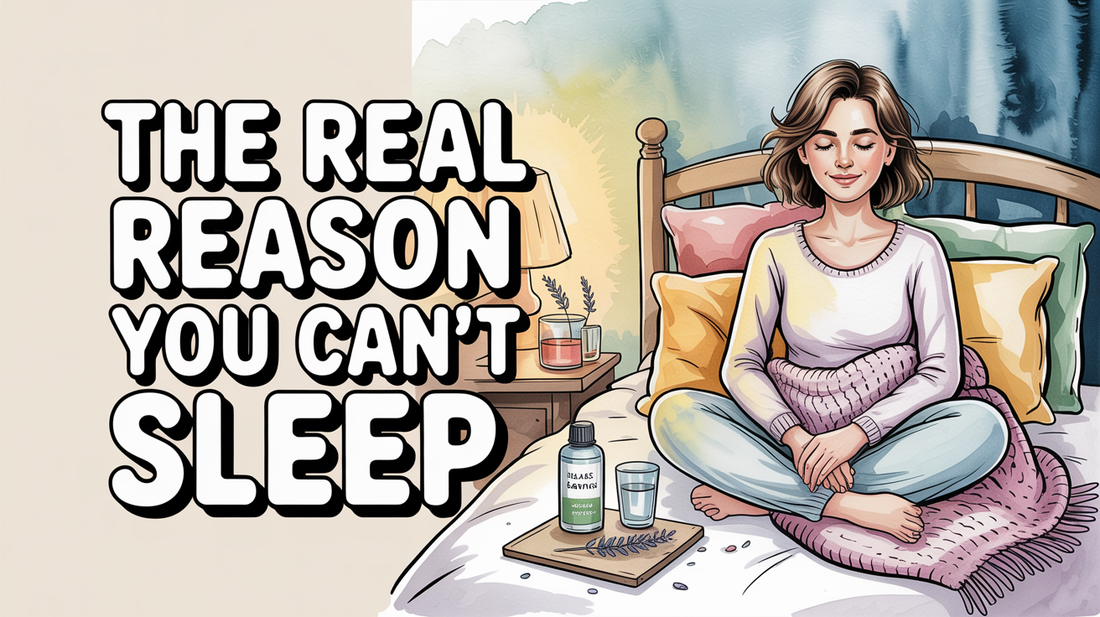The Untold Connection Between Magnesium Deficiency and Poor Sleep
Are you struggling with sleep issues? Many people experience the challenges of magnesium deficiency poor sleep, contributing to insomnia and other sleep problems. This article will explore the magnesium insomnia link and how addressing this mineral deficiency can improve your rest. We will break down the content into three clear sections based on current research so you can take actionable steps tonight.
The Sleep-Magnesium Connection Explained
Magnesium plays a vital role in how our bodies regulate sleep. It supports the nervous system and encourages muscle relaxation, which can create a more serene environment for sleep. When magnesium levels are adequate, they may help activate the parasympathetic nervous system, promoting calm and restful states. Unfortunately, magnesium deficiency can significantly affect sleep quality and duration.
- Helps regulate GABA neurotransmitters, which calm the nervous system.
- Supports healthy circadian rhythms by aiding melatonin production.
- Deficiency may affect up to 50% of adults, leading to restless sleep.
- Low levels can cause muscle tension and cramps, disrupting sleep.
- Supplementation may improve sleep onset time and morning alertness.
Try It Tonight: Quick Start ✅
- Screen-free + dim lights for 10–15 minutes.
- Gentle stretch or slow breathing (4–7–8).
- Apply Magnesium Spray as directed (e.g., 4–8 sprays on legs/arms/shoulders 10–20 minutes before bed). Patch-test if new to topicals.
Why Traditional Fixes Don’t Always Work
Many common sleep remedies miss the mark because they don’t address foundational nutritional deficiencies like magnesium. Traditional solutions often treat symptoms rather than the root causes of sleep problems, resulting in only temporary relief. Understanding why these methods fall short underscores the importance of tackling magnesium deficiency.
- Sleep medications can lead to dependency and do not resolve nutritional issues.
- Melatonin supplements may be ineffective without sufficient magnesium for natural production.
- Sleep hygiene practices are beneficial but cannot compensate for mineral deficiencies.
- Stress management techniques offer limited help if magnesium levels are low.
- Many people are unaware of their magnesium deficiency due to poor diet and lifestyle factors.
Why We Recommend a Gentle Helper 🌿
Magnesium Spray is designed for quick absorption and a soothing, non-sticky feel with calming notes. It may support a consistent bedtime ritual.
- Quick-absorbing comfort—no heavy residue.
- Gentle feel designed to minimize tingling or itch.
- Clean-leaning and bedtime-friendly scent.
How Magnesium Spray Improves Sleep Quality 🔍
Topical magnesium spray offers unique advantages for enhancing sleep quality by bypassing digestive issues and allowing direct absorption through the skin. This delivery method can be particularly beneficial for those who struggle with digestive upset from oral magnesium supplements. The spray format allows for targeted application and quicker absorption.
- Transdermal absorption avoids common digestive side effects.
- Can be applied directly to muscle tension areas for localized relief.
- Skin absorption may be more effective than oral supplements for some individuals.
- Easy to incorporate into your bedtime routine.
- May raise cellular magnesium levels and improve sleep with consistent use.

